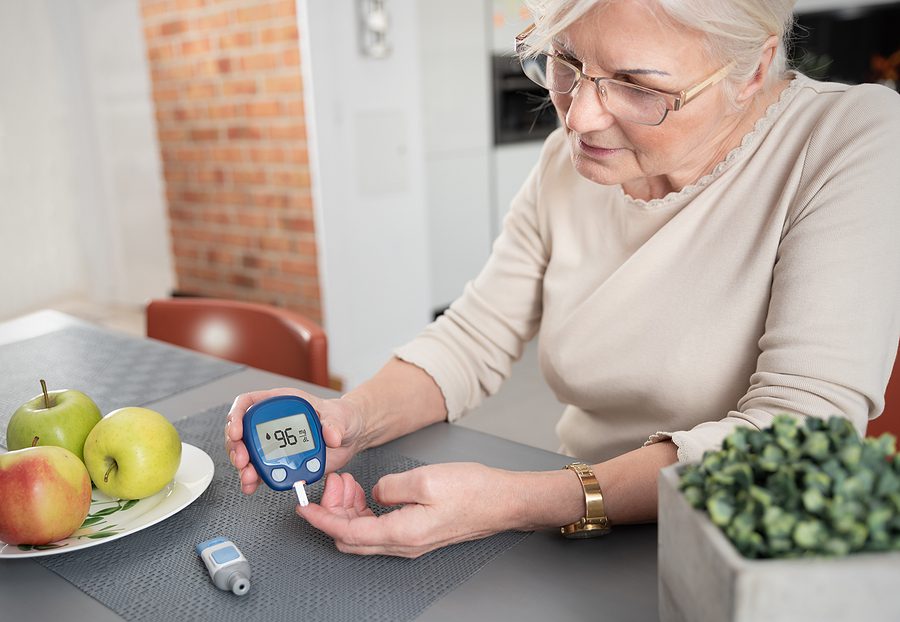Many Americans live with Type 2 Diabetes, and it can be difficult to manage properly. As you age, diabetic symptoms can progress and worsen. Since many bodily functions lessen in effectiveness with age, it becomes more important to manage your diabetes well. Overall, this means that elderly diabetics need to adjust their treatment plans over time in order to live a healthy lifestyle.
How Your Body Ages
As you age, certain bodily functions begin to slow down. Nerve pains, weakening muscles, and slower bodily repair occurs. Especially in the later stages of life, your body just doesn’t process food like it used to. Your metabolism slows down with age, which can play a big role in your ability to process sugar, even with your diabetes medications.
How Type 2 Diabetes Progresses Over The Years
As with most chronic illnesses, the symptoms of type 2 diabetes progress over time. Overall, your body’s ability to process and regulates sugar worsens. The pancreas becomes even more ineffectual at producing insulin. Additionally, peripheral artery disease (PAD) and diabetic neuropathy are linked to diabetes. As you age, your risk factors for these complications increase. These two complications are what lead to diabetics needing amputations.
Lastly, many diabetics deal with diabetic retinopathy. This is where high blood sugar creates blockages in the smaller blood vessels in your eyes. This creates a number of vision complications, that can lead to blindness if left untreated.
Healthy Living With Progressing Type 2 Diabetes
Diabetics of any age can manage their condition by working to live a healthy lifestyle. Proper diet and exercise are good places to start. A healthy diet with plenty of vegetables is important. Your food choices can impact your blood sugar. Try to avoid foods packed with sugars and fats. Proper portioning is important, too. Monitor your blood sugar so that you can make better, more informed decisions regarding your food choices.
Being active is a good way to live healthy with type 2 diabetes. Aerobic exercise and flexibility training can be healthy ways for elderly individuals to get active and stay moving. Along with a good diet, exercise can help you lower your weight. Generally, healthy weight maintenance is vital for staving off obesity and other complications common with diabetes.
Talking With Your Doctors
Your doctors can help you figure out ways to stay healthy and live a longer life. One of the biggest reasons people who have diabetes struggle with it is that they do little to change their lifestyle after the diagnosis. By working closely with your doctors to make healthy changes to your life, you can improve your life expectancy as well as the quality of your life.
Having a Care Team Behind You
Being able to rely on family for support is great, but not everyone has the option. Your family may not be able to provide the total care and support you need to live a healthy life with your type 2 diabetes. A Certified Home Health Aide could be a solution. Home health aides are trained to provide care and support for the elderly and disabled. Overall, this care can include nutritious meal preparation, accompanying clients to doctor’s appointments, and assistance with physical therapy or light exercise.
Safe Harbor Healthcare Services does not provide medical, healthcare, or financial advice via articles. This material has been prepared for informational purposes only. It is not intended to provide, and should not be relied on for medical advice.
Safe Harbor Healthcare Services has been providing excellent home care on Staten Island since 1967. Our services help the elderly and disabled live safely and independently; while giving their families the peace of mind they need. For more information contact us by clicking here, or call (718)-979-6900.

